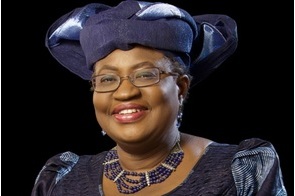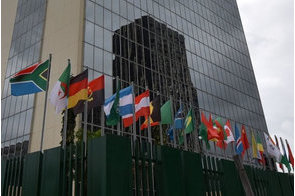Japan provides $700 million to AfDB for concessionary lending

Summary
Ambassador Kawamura said he hopes the loans and grants will be used effectively to improve economic and social conditions of less-privileged people in Africa.
The Japan International Cooperation Agency (JICA) has signed a loan agreement with the African Development Fund (ADF) to the tune of 73.601 billion Japanese Yen (approx. US $700.9 million). The loan is part of Japan’s contribution to the ADF’s Fourteenth Replenishment (ADF-14). This is the first JICA loan provided to the ADF.
The ADF is the concessional financing window of the African Development Bank (AfDB). It provides low income Regional Member Countries with concessional loans and grants, guarantees as well as technical assistance for studies and capacity building in support of projects and programmes that spur poverty reduction and economic development.
The loan by Japan will provide the ADF with resources to support recipient countries during the ADF-14 period (January 1, 2017 to December 31, 2019), and contribute to economic growth as well as poverty alleviation in Africa’s least developed countries.
“Thanks to Japan and its Government for keeping a promise. One often hears about many international pledges of development cooperation remaining unfilled,” said AfDB President, Akinwumi Adesina, while signing the Notes of Exchange. “I would like to commend the full accomplishment of Japan’s commitments to Africa’s development. With its $700 million loan, which came on top of $328 million in the form of a grant, Japan has significantly contributed to the ADF commitment capacity for the period 2017-2019.”
Adesina stated that Japan is the second-largest contributor to the ADF in cumulative terms, and it has increased its contributions significantly over time.
Also speaking on the occasion, Japan’s Ambassador to Côte d’Ivoire, Hiroshi Kawamura, said he was glad to sign the accord to bolster Africa’s socio-economic development. “Our contributions to the ADF-14 replenishment will allow the Government of Japan to increase its contributions to 7.3%, against 6.7% for the ADF-13,” he stated.
Ambassador Kawamura said he hopes the loans and grants will be used effectively to improve economic and social conditions of less-privileged people in Africa and contribute to accelerating the Tokyo International Conference on African Development (TICAD).
JICA’s Chief Representative in Côte d’Ivoire, Tsutomu Iimura, said his institution is in full support of the programme of development of the AfDB, encapsulates in the “High 5s.” Iimura expressed the hope that JICA’s projects and contributions to ADF-14 would bolster the Bank’s capacity to carry out the objectives of the High 5s in countries where support is most needed.
Since its inception in 1972, the ADF has conventionally received subscriptions in the form of grants from donor countries, including Japan, as a source of funding to achieve its development mandate. During the negotiations of its fourteenth replenishment, the ADF offered donor countries the opportunity to include concessional loans within subscriptions to the Fund for the very first time.
JICA also provides private sector development support through projects under AfDB’s Enhanced Private Sector Assistance for Africa, which the Government of Japan and the Bank launched as a strategy for support in Africa in July 2005.
Related
-
New vistas for Ngozi Okonjo-Iweala at Lazard and Gavi
At Gavi, Mrs. Okonjo-Iweala will succeed Dagfinn Høybråten, a former Norwegian Minister of Health.
-
AfDB to support economic diversification in Djibouti
The new Country Strategy Paper for Djibouti focuses on developing infrastructure in the energy and health sectors and ...
-
Senegal announces Amadou Hott's candidacy for AfDB President
The Government of Senegal, through the Ministry of African Integration and Foreign Affairs, officially launched the ...








